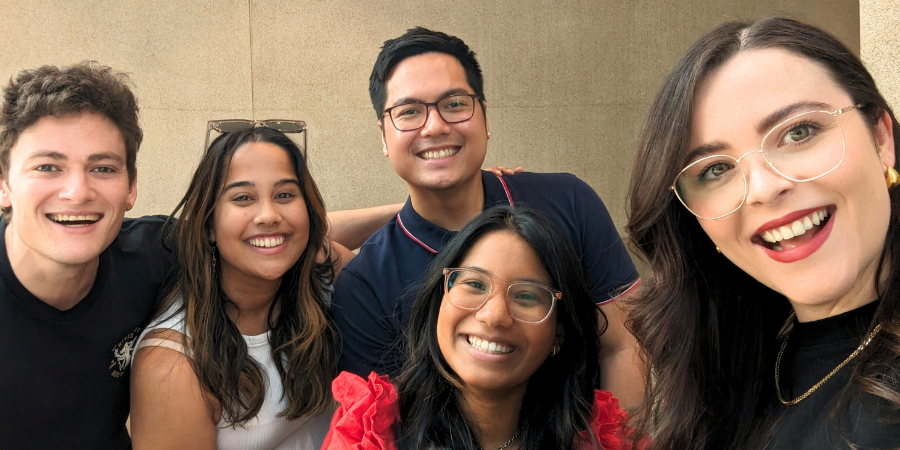This article was written by a millennial manager in collaboration with a Gen Z employee.
The corporate landscape is changing, and a new generation will soon overtake millennials as the largest generation in the workplace. Generation Z, born between 1995 and 2010 (give or take) are a breath of fresh air in the corporate world, challenging older generations to prioritise work-life balance, mental health, and company culture more than ever. According to Pew Research, Gen Z are the most diverse, best-educated generation yet, so perhaps we could learn a thing or two from the younger generation.
Embrace a healthy work-life balance.
We often see references on social media of Gen Z finishing work on the dot. Gone are the traditional work-related taboos of putting in extra time to impress your boss. Gen Z are paving the way for healthy work-life balance, emphasising the importance of work from home jobs, and establishing boundaries outside the 9-5. They have learnt the mistakes from the older generations, as they’ve watched us burn out due to workplace-related stress and overtime.
According to Business News Daily, research found working overtime actually lowers your productivity and hours in the office do not always correspond to business success so they may be onto something here…
Encourage connection and community within the workplace.
Building meaningful connections, an inclusive culture and trust in the workplace is vital for Gen Zs to feel satisfied at work. We found from our own research, conducted by YouthInsight, that social connection and loneliness were some of the hardest things about being a young person in 2023. We often see the importance Gen Z employees place on establishing friendships at work. It is so vital to establish connections with younger people in the workplace, whether that be from regular 1-1s, community catch-ups or regular social committee events.
Prioritise mental health and wellbeing.
Within the same study, YouthInsight discovered that mental health was one of the top issues faced by young people when asked about their biggest concerns. This is not surprising. Gen Zs are faced with increased global challenges like the rise in social media, climate change and changing nature of work.Managers need to support Gen Z workers with any workplace-related mental health concerns, offer flexible working and workplace counselling services if accessible.
Pay is not the most crucial factor when looking for a job.
Gen Zs won’t hesitate to decline a job offer or quit work if businesses don’t offer flexible working, hybrid options or enact socially and environmentally responsible practices. On top of this, diversity and inclusion are important factors when selecting a job, as well as salary transparency. All these factors need to be considered by hiring managers during the recruitment process, specifically with graduates or first jobbers.
Emma Ruben, Writer, Content Producer and Gen Z at Student Edge said this generation are really changing what having a career looks like.
“Our jobs and our career are no longer tied so closely to our identity and who we are as people,” she said.
“Instead, it’s just one small element of who we are from 9-5, Monday to Friday.
“With a lot of Gen Z going through school and tertiary education during the COVID-19 pandemic, I think we’re hyper aware that life is short and that there’s more to it than our jobs.”
Learn from Gen Z and adapt.
Gen Z are one of the smartest generations. They have learnt the mistakes of millennials, Gen Xs and boomers and have seen the impact an unhealthy work-life balance can have on employee satisfaction and long-term happiness. I personally think we could learn a thing or two from Gen Zs, specifically by adapting our traditional ways of working and who knows…. we might become more productive, happier, and healthier overall.








